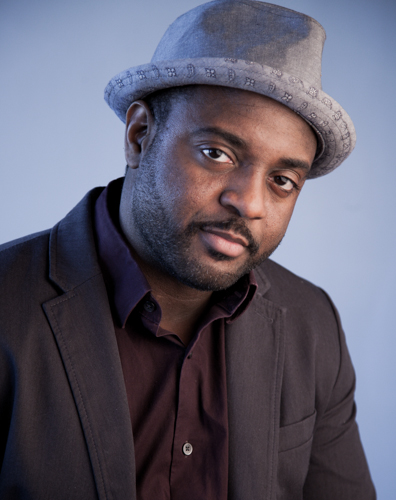
Yale Law School
Every year, scores of recent law school graduates pass the bar and are granted the right to practice law. On Friday, Reginald Dwayne Betts LAW ’16 GRD ’23was sworn in as an attorney to the Connecticut bar — but the story leading up to this moment was far from that of your typical lawyer.
In 1996, Betts was a 16-year-old honors student. But the same year, he was sentenced to nine years in jail for carjacking a man at gunpoint. After serving his time, Betts went from community college to Yale Law School, from which he graduated in 2016, becoming a nationally acclaimed poet and author along the way.
Betts passed the Connecticut bar exam in February. In September, though, he received a letter from the Connecticut bar explaining that his criminal history could disqualify him from practicing law in the state. But after an outpouring of support for Betts, including a New York Times editorial, the Connecticut bar awarded Betts that right earlier this month.
“Dwayne has a different and important qualification than most attorneys don’t have, because he himself has been on the receiving end of legal representation with serious consequences,” said Miriam Gohara, one of Betts’ professors at YLS. “The idea that he would be prohibited from practicing law based on his criminal record is particularly misguided because there is a lot that a person who has been through the criminal justice system can bring to the table.”
Betts’ improbable story began on Dec. 7, 1996, when he was still in high school. It was a Saturday, and Betts and a friend were on their way to Springfield Mall in their hometown of District Heights, Maryland.
Betts and the friend stumbled upon a man asleep in his car, and decided to steal his vehicle and threaten him with a gun. Within a day, Betts was arrested and charged. A year later, he was tried as an adult and sentenced to nine years in prison.
During his time behind bars, Betts immersed himself in the world of books. He developed a passion for poetry after reading “The Black Poets,” an anthology of black American poems.
When Betts was released from prison in 2005, he enrolled at Prince George’s Community College, and soon began to teach poetry and nonfiction writing to high school and university students.
By the time he graduated from YLS in 2016, Betts had been named a member of the Council on Juvenile Justice and Delinquency Prevention by President Obama and a Radcliff fellow at Harvard, and had published two critically acclaimed poetry collections and an award-winning memoir.
“I’ve come a considerable distance from who I was at 16, but I’m still intimately connected to it, given the work I’m doing,” Betts told The Hartford Courant upon receiving his diploma. “Of course, it feels amazing to say I’ve come this huge distance, but the distance I’ve traveled is only worth it if I’m able to pull other people up.”
Admission to the Connecticut bar remained the final obstacle standing between Betts and his desire to help people with stories similar to his. In February 2016, Betts passed his bar examinations, and yet, his past continued to hinder his rise. Article VI of the Bar Examining Committee’s regulations specifies that “a record manifesting a significant deficiency in the honesty, trustworthiness, diligence or reliability of an applicant may constitute a basis for denial of admission.” The Connecticut bar cited this article in the letter it sent to Betts in August 2017 in which the bar explained that Betts might not be able to practice law in Connecticut.
All that changed last September, when Betts was finally admitted to the bar after weeks of deliberation from Connecticut’s examining committee. On Nov. 3, he was sworn in as an official member of the bar.
Noah Messing, a lecturer at the Law School who taught Betts, praised him for his conscientiousness as a student, and for his dedication to becoming an attorney, noting that there is much to learn from his story.
“Dwayne made a split-second mistake and, from what I can tell, it nearly ruined his life,” Messing said. “As an old proverb notes, the reputation of a lifetime can be destroyed in an instant. Dwayne’s story is wonderful because this remarkable person achieved his potential, along so many dimensions, after nearly squandering it. But his story was damn close to being an unmitigated tragedy.”
In 2010, Betts’ memoir, A Question of Freedom, won the NAACP Image Award for nonfiction.
Daniel Dager | daniel.dager@yale.edu







